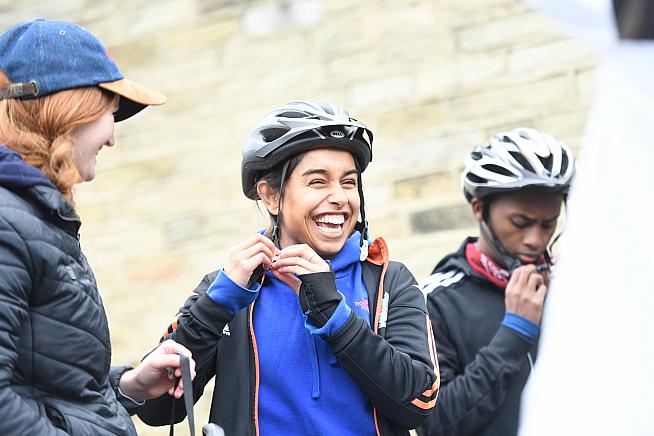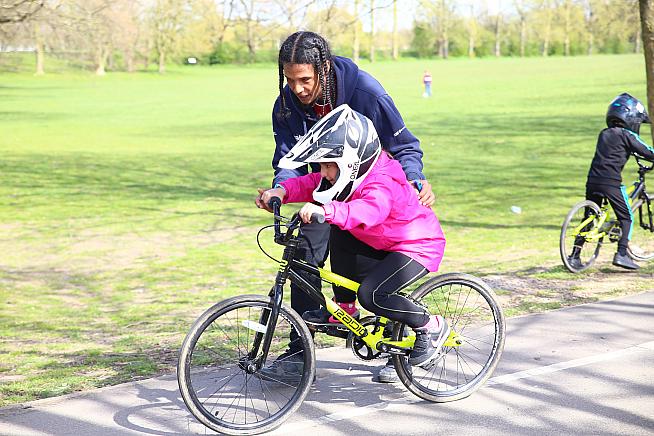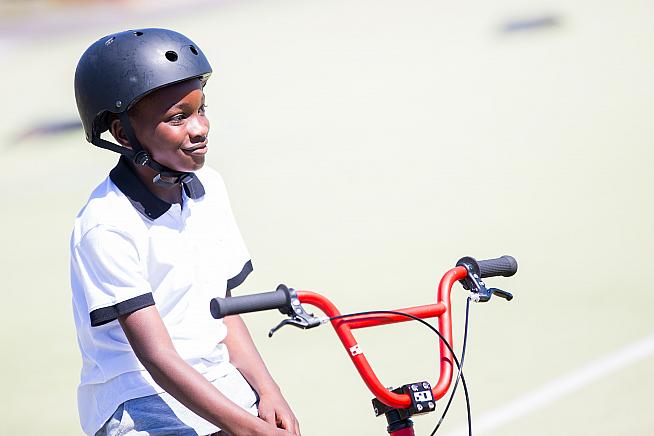British Cycling and the Rapha Foundation are to partner on a new grassroots initiative to widen participation in cycling.
Announced this week, the British Cycling City Academies project will see the launch of City Academy Hubs offering cycling education and skills to children aged 10-14 years. A second phase will see the establishment of City Academy Clubs and Talent Centres to help to support cyclists who wish to progress to professional participation in cycling via the British Cycling development pathway.
The scheme begins a two-year pilot this month with the first hubs in the London Boroughs of Hackney and Newham, to be followed by a national rollout.
The aim of the scheme is to improve the gender balance, increase involvement from diverse ethnic communities and encourage greater engagement with young people from lower socioeconomic backgrounds in cycling.

The announcement follows the publication of British Cycling's Diversity and Inclusion strategy, and is part of Rapha's commitment to further fund, develop and represent a more diverse cycling community around the world. Sixty per cent of the Rapha Foundation's annual $1.5 million funding goes towards supporting BAME and female focused programs and initiatives.
Together, the Rapha Foundation and British Cycling have a shared mission to tackle the most fundamental issues facing the sport.
"In the UK 17.1% cyclists come from diverse ethnic communities, yet ethnically diverse populations make up just 5% of British Cycling's membership," explain Rapha in a launch statement.
"Likewise, 46.3% of UK cyclists come from lower socio-economic communities yet 85% of the British Cycling talent pathway is made up of riders from areas in the country's most affluent communities."
This need for more access to sport has been amplified by the pandemic, with a survey by Sport England finding almost 1 in 3 children are not meeting the recommended 30 minutes per day physical activity. The decline is greater among children and young people from lower socioeconomic and diverse backgrounds.

Brian Facer, British Cycling CEO, said: "The British Cycling City Academies project is a key part of our wider strategy to make cycling more inclusive, more diverse and more reflective of our society. Ensuring greater diversity is essential to the future of our sport and it is also the right thing to do from a societal perspective.
"I'm very excited to be partnering with Rapha, through the Rapha Foundation, on this project. By making our pathways into participation and competition more accessible we will be enabling more talented cyclists and potential champions of the future to shine, regardless of their background.
"We also believe that the City Academies can be real beacons within their communities, and that once the first cyclists start to come through into our development pathways it will soon create a virtuous circle and a positive legacy for the future."

Simon Mottram, Founder and Chief Executive of Rapha and the Rapha Foundation, adds: "As passionate cyclists, we firmly believe that cycling has the power to change lives and help make the world a better place. But for the true potential of pedal power to be realised, it must be accessible to all.
"As a brand with British roots, we're proud to be able to support organisations here on home soil, which is why we are incredibly excited to be working with British Cycling through the Rapha Foundation, an organisation with a shared mission to better the sport and improve access and support for the next generation of racers.
"The City Academies concept represents a fresh new way of nurturing new cycling talent, who represent the future of British cycling. An initiative we are very proud to be a part of."
0 Comments





